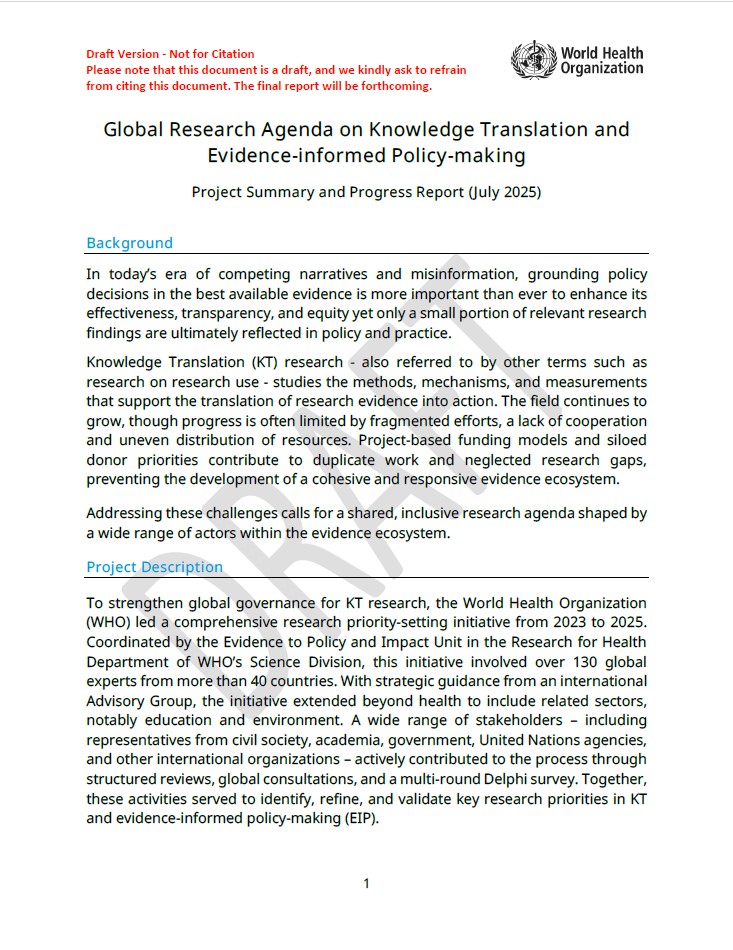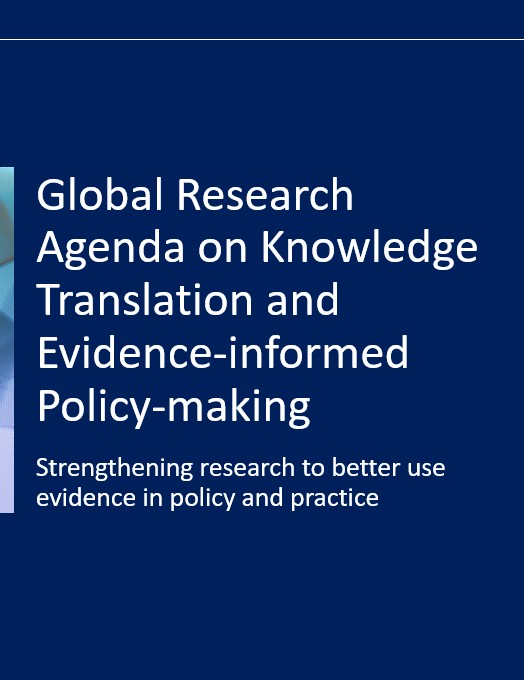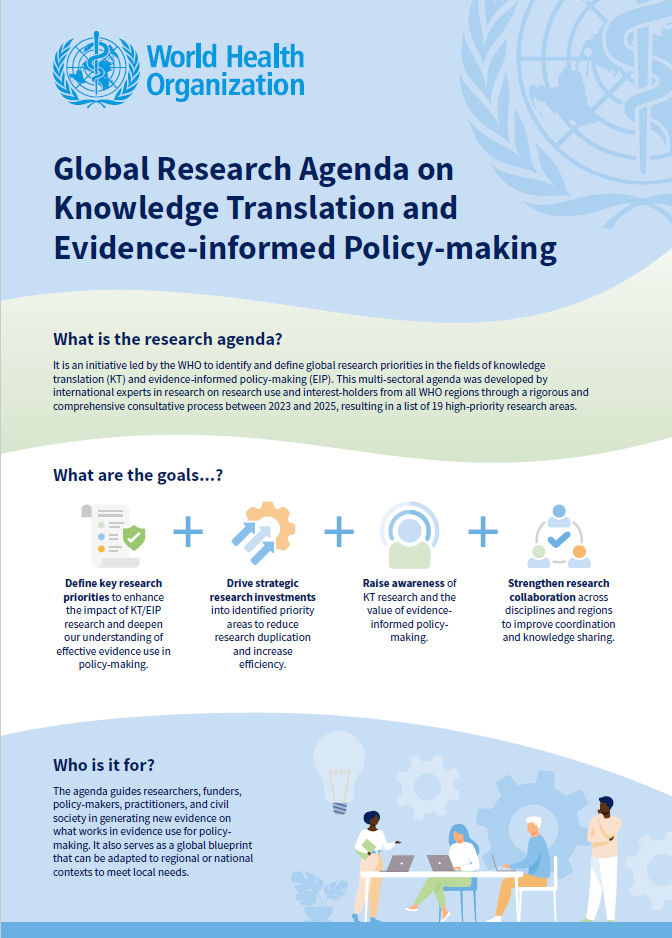

Global Research Agenda on Knowledge Translation and Evidence-informed Policy-making
About
What is the Global Research Agenda?
The Global Research Agenda on Knowledge Translation (KT) and Evidence-informed Policy-making (EIP) is an initiative led by WHO to identify and define research priorities in the fields of KT and EIP and establish a comprehensive research agenda for these areas. The agenda is being developed by experts in research on research use and interest-holders from all WHO regions through a consultative process. The work of identifying and defining research priorities centers on improving efficiencies and synergies in KT research, understanding successful evidence use in policy-making, directing funding to identified priority areas, raising awareness about KT research and evidence use, and enhancing collaboration across the evidence ecosystem. The ultimate goal is to deliver a consensus-based Global Research Agenda that will drive actionable and impactful research on KT and strengthen links between research and policy.
Why do we need a Global Research Agenda?
In today’s era of competing narratives and misinformation, it is crucial that policy is informed by the best available evidence. Despite significant progress in KT and EIP over the years, research findings and other forms of evidence remain underused in policy-making processes. KT research, studying the methods to promote research uptake, faces challenges due to lack of coordination within and across disciplines and actors, leading to both redundant and under-resourced studies. A unified research agenda that provides orientation and guidance in this field is needed to improve strategic collaboration and coordination among interest-holders to drive better policy outcomes. Aligning the research priorities of evidence generators, intermediaries, users, and funders will help break silos, maximize the impact of KT research, and minimize research waste.
How is the Global Research Agenda being developed?
Since 2023, the initiative has been coordinated by the Evidence to Policy and Impact Unit within WHO’s Science Division. The research agenda with 19 high-priority research areas was finalized in early 2025, with the results officially presented during the launch event in May. With the agenda now established and the results being written up into a final report, the focus is shifting toward dissemination and implementation activities.
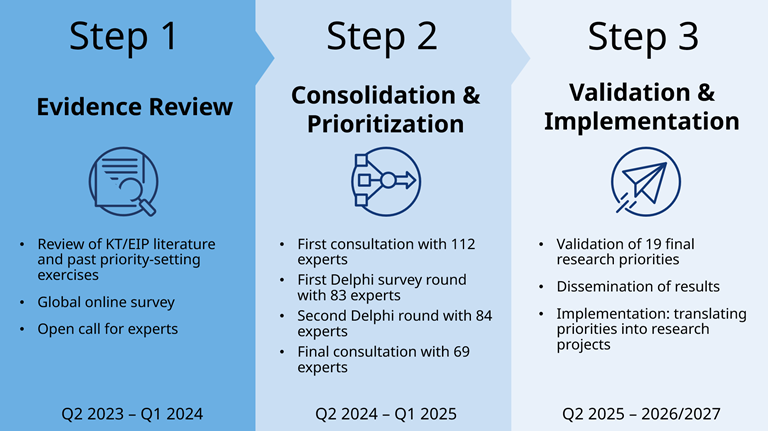
Who is involved?
A diverse group of experts in KT and EIP from over 40 countries – representing all WHO regions and spanning health and other social sectors, civil society, academia, government, UN agencies, and international organizations – contributed to the development of the research agenda. Through a consultative process conducted between 2024 and early 2025, they collaboratively identified and refined research priorities, culminating in the creation of the Global Research Agenda.
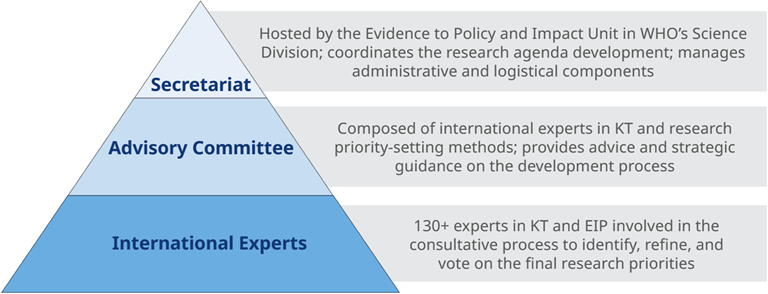
How can I get involved?
The Global Research Agenda, launched in May 2025, is now ready for action. We invite all interested researchers, funders, policy-makers, practitioners, and interest-holders to engage with the agenda and support its dissemination and implementation. Use the slide deck provided on this website to support sharing and dissemination. Visit the Global Coalition for Evidence to follow implementation efforts, and join the EVIPNet LinkedIn group to stay informed about upcoming announcements and updates. Questions or ideas? Contact the WHO Secretariat at eidm@who.int.
In their own words: Interest-holder reflections on the GRA
News
All →
Resources
A systematic approach for undertaking a research priority-setting exercise: guidance...
Contact
WHO Global Research Agenda Secretariat
Evidence to Policy and Impact Unit
Research for Health Department
Science Division
20, Avenue Appia
CH 1211 Geneva 27
Switzerland
Email: eidm@who.int

